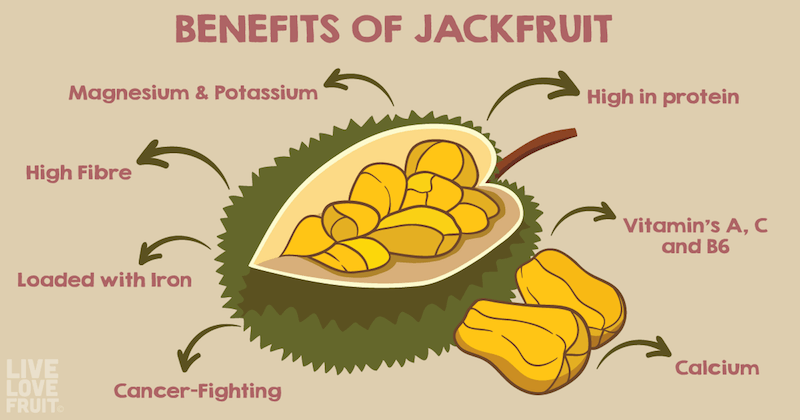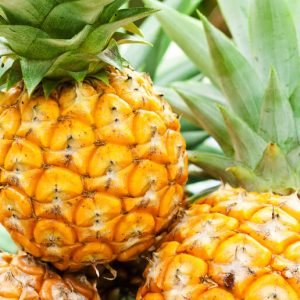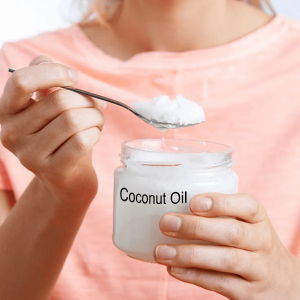Jackfruit has grown in popularity over the last few years – and for good reason! This exotic fruit is not only sweet and delicious, but it is packed with many different nutrients and provides the body with a host of different benefits.
Jackfruit, native to southern Asia, is one of the largest fruit trees in the world, capable of growing very big an heavy. It is packed with protein, potassium, iron, fibre, magnesium, vitamin B6, vitamin’s A and C, as well as calcium.
And not only can you eat the fruit, but you can eat the seeds, too (boiled, of course). The seeds themselves are rich in thiamin and riboflavin, which help keep your eyes, skin and hair vibrant and healthy.
Jackfruit Benefits
All of the nutrition in jackfruit provides it with some truly remarkable benefits. Below are just a few of the ways jackfruit helps nourish the body.
1. Boosts Magnesium Levels
Seeing as how over 80% of Americans are magnesium deficient, including foods in your diet that are higher in this mineral than others, is a great way to get your levels back up. Just one cup of jackfruit will give you 15 percent of the daily recommended amount of magnesium.
Boosting magnesium levels will help you reduce the risk of many diseases, like high blood pressure, diabetes, heart disease, tooth decay, asthma and osteoporosis.
2. Strengthens Immunity and Fights Cancer
Jackfruit is loaded with free-radical scavenging vitamin C (over 37% for one cup!). Vitamin C helps protect the immune system, and also lowers the risk of diseases like cancer. It is a natural antioxidant, but since it is water soluble, and not found in our bodies, you must consume it on the daily.
Jackfruit also contains other disease-fighting antioxidants and phytonutrients like lignan’s, isoflavones, and saponins (1).
One study found that vitamin C increases the activity of an important antioxidant enzyme that helps prevent breast cancer (2). Antioxidants also help neutralize free radicals, which can help fight some forms of cancer and can give the immune system the support it needs to continue managing it.
3. Improves Cardiovascular Health
Jackfruit also has the ability to improve heart health, thanks to vitamin B6. One study including more than 5,500 adults with known cardiovascular disease found that supplementation of folic acid, vitamin B6 and vitamin B12 reduced risk of stroke and heart disease by 25 percent (3). The risk was reduced, as the vitamins helped reduce homocysteine levels, which is often implicated in heart disease.
Jackfruit also contains a whack of potassium (over 21 percent for just 1 cup), which is known to help regulate blood pressure, and balance out high sodium levels in those consuming a sodium-heavy diet.
4. Improves Digestion
Jackfruit is loaded with fibre, so it is a great option for anyone suffering from constipation or other digestion issues. Not only does the actual fruit possess a tonne of fibre, but the seeds are loaded with it, too. Fibre also helps fill you up, making it a great food for maintaining weight.
5. Eye Health
Jackfruit contains vitamin A, too, which has been proven to improve eye health and prevent nuclear and cortical cataracts (4). Jackfruit also contains antioxidants lutein and zeaxanthin, which helps protect the eye from harmful UV rays and other harmful light waves.
6. Osteoporosis
As well as bone-building magnesium, jackfruit contains calcium, which helps keep our bones strong and reduces the risk of osteoporosis and arthritis. Since we must get calcium from the foods we eat, eating enough calcium-containing foods every day is an important part of making sure your bones stay strong and fracture-free.
Jackfruit Seed Benefits
The jackfruit seeds are also highly beneficial. Aside from their heavy-duty fibre content, they contain thiamin and riboflavin, which keep your eyes, skin and hair healthy.
The seeds are also a good source of minerals like zinc, iron, calcium, copper, potassium and magnesium. Their high iron component eliminates the risk of anemia and other blood disorders in individuals who choose to eat them. Iron also keeps the brain and hearty healthy and strong.
Jackfruit seeds contain compounds that have antimicrobial effects, which prevent contamination with bacteria that cause food-borne illnesses. They are also very nourishing to the digestive tract, and are known to give instant relief from indigestion.
How To Consume Jackfruit and Jackfruit Seeds
You can find jackfruit fresh or canned, with canned being most readily available. I often find fresh jackfruit at my local Asian food store, but I have found canned jackfruit at my local supermarket, as well as health food store.
If you’re choosing the canned version, make sure there aren’t any added sugars or preservatives. Look for jackfruit only in water and/or brine. If buying fresh, look for a ripe one by choosing one that has yellowish skin with spikes that have softened. It should also have a really strong fragrance.
While jackfruit will taste best from the countries it grows (jackfruit in Costa Rica was amazingly delicious), cooking with it in places where it doesn’t grow is probably the best way to utilize the fruit.
One of the most popular jackfruit recipes is jackfruit “pulled pork.” It acts as a wonderful meat substitute and has a very realistic “pulled pork-like” consistency. You can find a good recipe here, or watch the video below!
As for jackfruit seeds, you should always boil them before consuming. If you do end up getting the fresh, ripe fruit, all you need to do is collect the seeds, and then boil them in water with a little bit of sea salt or Himalayan salt for about 45 minutes to 1 hour (or until softened). They taste like really rich, fatty potatoes, and trust me, you’ll be craving them time and time again.









Hello, I was wondering if you believe in chelation therapy. I recently had a high cadmium level and a few others weren’t high but it scared me. Is there any advice you could give me so that I could detox myself?
Hey Kelly – yes, I definitely believe that we are able to get rid of heavy metals in the body. Look into getting some zeolite, as well as Hawaiian spirulina, wild blueberries, and cilantro.